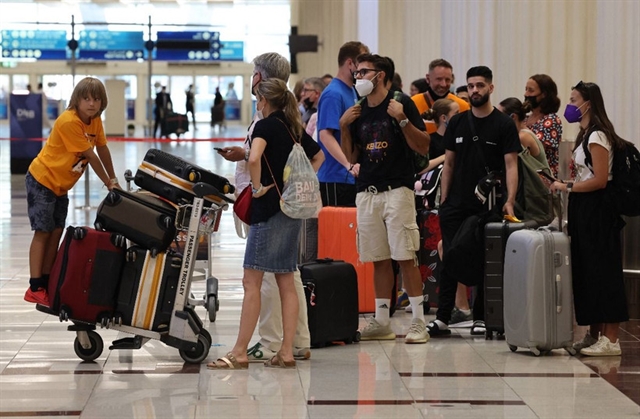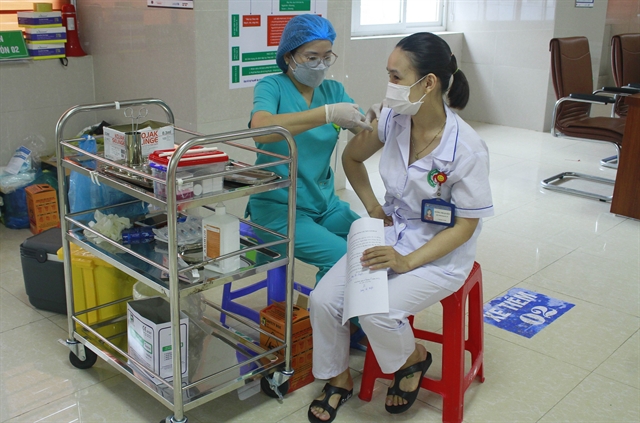 Society
Society


|
| Administering the fourth dose of COVID-19 vaccine to medical staff in the northern province of Ninh Bình. — VNA/VNS Photo Hải Yến |
HÀ NỘI — If Việt Nam declares the end of the COVID-19 pandemic in the country, it will meet many difficulties in pandemic prevention and control and be hit by slower economic recovery, the Ministry of Health (MoH) has said.
Under the latest draft plan on COVID-19 prevention and control in the new situation, which is waiting for input from the National Steering Committee for COVID-19 prevention and control, ministries, provinces, cities and experts, the MoH said that the pandemic situation has basically been controlled nationwide.
However, the pandemic situation is still complicated in many countries and is even increasing again in some. The virus is constantly changing and recording new variants, which could potentially cause a strong outbreak on a large scale, beyond the health system’s capacity.
Latent risks
The SARS-CoV-2 virus has constantly mutated. From December 2019 to now, five new variants have been recorded and within the past six months, the Omicron variant has five sub-variants which can spread quickly, and cause severe disease with a high mortality rate.
The MoH therefore will not change the classification of COVID-19 disease from group A infectious disease to group B infectious disease, which is a less dangerous classification, at present. Pandemic prevention and control measures are flexible and gradually moving towards the 'new normal'.
The ministry said if COVID-19 is moved to group B, the participation of authorities at all levels, organisations, businesses and people will not be given enough attention. People will not be vigilant, ignoring the pandemic’s danger, and not taking proactive measures to prevent it.
Legally, the Law on Infectious Diseases Prevention and the Prime Minister’s Decision 02/2016/QĐ-TTg issued on January 28, 2016, regulated that one of the norms to announce an end of a disease is no new cases are detected within 28 days. Việt Nam still records a high daily number of cases in most localities. Therefore, the country needs to continue to implement pandemic prevention and control measures according to the World Health Organisation (WHO)’s recommendations.
At a conference on April 11 this year, the International Health Regulations (IHR) Emergency Committee identified the COVID-19 pandemic as a public health emergency that continues to greatly affect people’s health around the world. It continues to pose risks and disrupt international trade, and requires international coordination and response.
Another reason is that if the pandemic has a new, more dangerous variant, causing an increase in severe cases or deaths, there is a risk of a strong outbreak on a large scale, beyond the health system’s capacity. If COVID-19 is downgraded to group B the response from medical and social forces will become slow.
Moreover, patients will not be able to enjoy free-of-charge COVID-19 treatment, especially in remote areas that struggle to access medical services, such as ethnic minority areas.
With the above in mind, the MoH will maintain COVID-19's current classification of the pandemic in Việt Nam, to ensure that the entire political system participates in anti-pandemic work and to arrange reasonable funding for anti-pandemic activities.
Pandemic prevention work will be active when a new dangerous variant appears that could exceed the health system’s capacity. — VNS




